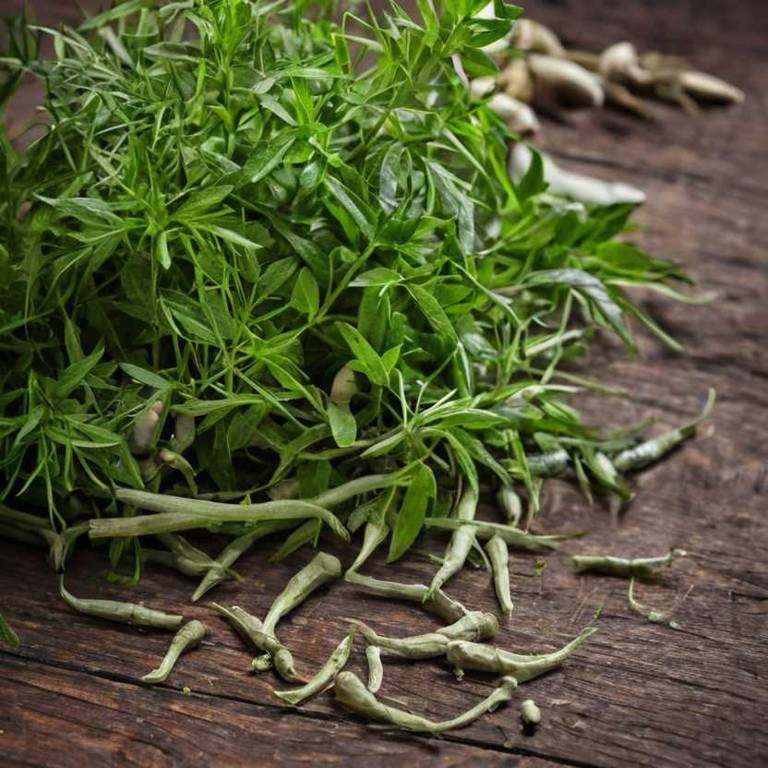Vomitoria Root (Rauvolfia vomitoria)
Vomitoria Root (Rauvolfia vomitoria) is a member of the Rubiaceae family, native to West Africa, Central Africa, and Southern Africa. Traditionally, its stems, leaves, and roots have been used for infusions, decoctions, and powders.
This herb is particularly valued for its bitter, sedative, and anti-inflammatory actions, and has a long history of use in african traditional medicine, european herbal medicine, and ayurvedic medicine.

Quick Facts / Key Information
| Common Name | Vomitoria Root |
|---|---|
| Scientific Name | Rauvolfia vomitoria |
| Plant Family | Rubiaceae |
| Genus | Rauvolfia |
| Species | vomitoria |
| Native Range | West Africa, Central Africa, Southern Africa |
| Plant Parts Used | Stems, Leaves, Roots |
| Primary Medicinal Actions | Bitter, Sedative, Anti-Inflammatory |
| Primary Traditional Systems | African Traditional Medicine, European Herbal Medicine, Ayurvedic Medicine |
| Historical Preparation Methods | Infusion, Decoction, Powder |
Botanical Identity
- Scientific Name
- Rauvolfia vomitoria
- Common Name
- Vomitoria Root
- Synonyms / Alternative Names
- Indian Snakeroot, Rauvolfia Root, Indian Snakeroot
- Plant Family
- Rubiaceae
- Genus
- Rauvolfia
Botanical Description
- Growth Habit
- Perennial herbaceous plant.
- Height
- It typically grows to a height of 1 to 3 meters.
- Leaves
- Simple leaves with smooth margins, upper surface dark green, lower surface pale green, featuring prominent stomatal bands along the midrib.
- Stems
- Cylindrical, woody, branched, with smooth bark and opposite leaf scars.
Traditional Uses / Historical Use
Traditional Systems
- African Traditional Medicine
- European Herbal Medicine
Historical Preparation Methods
- Infusion
- Decoction
- Powder
- Tincture
Medicinal Actions
- Bitter
- In herbal literature, noted as a calming bitter, in appetite-focused contexts.
- Sedative
- Historically regarded as a gentle sedative, in calming-focused applications.
- Anti-inflammatory
- As described in traditional systems, a mild anti-inflammatory, for general calming applications.
- Tonic
- In herbal texts, considered a soothing tonic, in whole-system applications.
Active Compounds
- Alkaloid
- Plant-derived nitrogenous compounds found in various tissues.
- Glycoside
- A chemical class frequently found in roots, leaves, and seeds.
- Tannin
- A group of compounds frequently present in plant tissues exposed to herbivory.
- Flavonoid
- A widely occurring class of plant polyphenols found in leaves, flowers, and fruits.
Modern Research Overview
Scientific research related to this plant is ongoing. This section will be expanded in the future to include summaries of phytochemical studies, laboratory research, and other relevant scientific literature as it becomes available.
Safety & Contraindications
- General Precautions
- Available information does not clearly establish general precautionary concerns for this herb.
- Contraindications
- The use of this herb has been associated with reported contraindications in some situations.
- Allergies
- Sensitivity or allergy-related effects have not been clearly established.
- Drug Interactions
- Available information regarding interactions with pharmaceutical drugs is limited.
- Toxicity
- Toxic effects have been reported in association with the use of this herb.
- Pregnancy & Breastfeeding
- Information addressing pregnancy and breastfeeding-related safety for this herb is limited.
Preparation & Usage Methods
- Infusion
- Dried or fresh plant parts are infused in hot water and consumed as a beverage.
- Decoction
- Decoctions are made by heating plant material in water for an extended time.
- Poultice
- This method uses direct contact between plant material and the skin.
- Extract
- This method isolates plant compounds using alternative solvents.
- Powder
- A preparation created by pulverizing dried plant material.
Growing, Harvesting & Storage
Growing / Cultivation
- Soil
- Prefers loamy soil with well-drained conditions. Typically grows best in organically rich soils.
- Sunlight
- Thrives in partial shade. Tolerates partial shade to full shade.
- Watering
- Prefers moist soils. Tolerates variable moisture levels.
Medical Disclaimer
The information provided on this page is for educational and informational purposes only. It is not intended to diagnose, treat, cure, or prevent any medical condition. Always consult a qualified healthcare professional before using any herb for medicinal purposes.